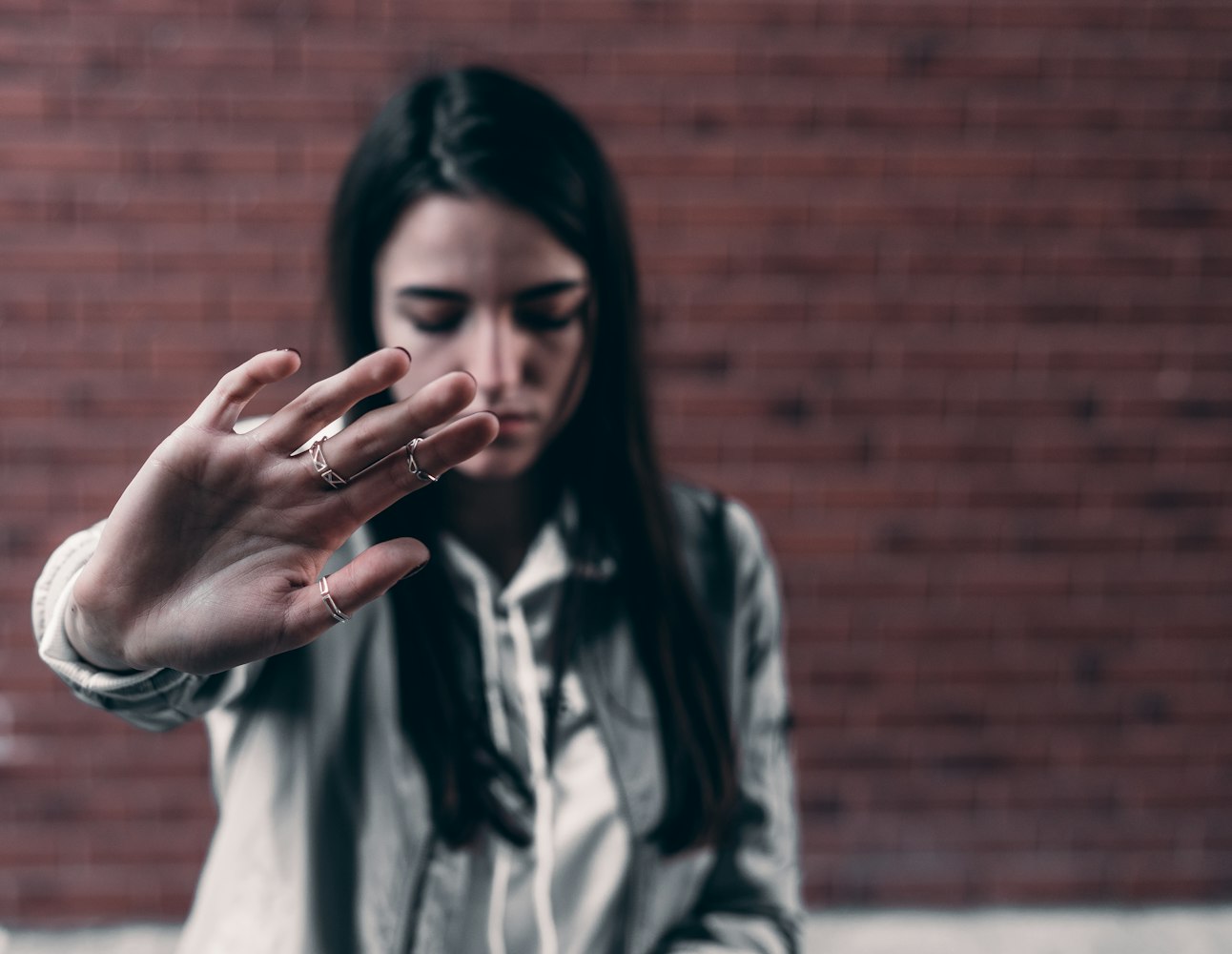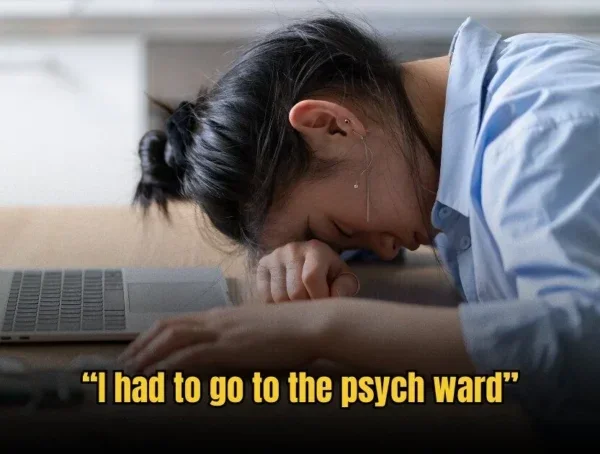The most recent online trend is the 10-year-challenge, and though I didn’t post any pics up, it did make me reflect on who I was 10 years ago.
There were definitely a lot of changes, and I’ve grown up a lot since then. Here are four lessons I’ve learnt which have made me a much better adult, compared to who I was a decade ago.

1. BE GENUINE (OR BE YOURSELF).
This is one I feel gets thrown around a lot, but without any context or explanation. Being ‘yourself’ can be hard and confusing, and it’s time someone talked about what it really means.
To put it simply, I think being genuine means being honest with yourself, in whatever circumstance you’re in. If you meet a girl, and you find out she loves crab and you hate it, being yourself simply means saying “Oh, it’s cool that you love crab, but personally I don’t like it,” instead of “Cool, me too!”.
Being genuine means saying difficult things to people who are close to you like, “Hey, I thought it was really rude and immature how you treated my friend,” and “Look, it’s not about the money, but I’d really appreciate it if you could pay back what I lent you.”
None of these things are easy to say, and it does put you in an awkward and difficult position. But being genuine means honestly expressing who you are, even at the risk losing the people close to you.
At this point, some of you will argue ‘but some people are naturally accommodating and don’t like confrontations. What if their relationships with others is what’s most important to them?’
Of course there are people who don’t like confrontations. But you can’t deny that the part of them which gets repressed is as much a part of them as the part that tolerates it. The difference is what they choose to express, and that’s a measure of how honest they are with themselves.
Yes, some things are not worth fighting over. You could compromise on what you feel like eating for dinner tonight in favour of your spouse’s or your friends’ preference. But at some point you’re going to argue with them over something far more important like your views on religion, or monogamy, or future plans or whatever it is that’s important to you.
And when that time comes, being genuine will require you to stand your ground.
Putting relationships above all else, even at the expense of yourself isn’t prioritising them, it’s being a pushover. Not having any convictions or principles doesn’t just make you less attractive as a person, it diminishes your worth as a human being.
People can’t trust you or love you if all that matters to you is other people’s approval.
The fact is, being yourself is polarising. That means that no matter what your thoughts and convictions are, someone, somewhere is going to be offended by you. You won’t (and can’t) be loved by everyone on earth.
So don’t try to be too accommodating by repressing yourself. Because no matter what you do, I guarantee you someone is going to hate you for it. Just be honest about who you are, and don’t sweat it when you piss someone off.
On the bright side is, someone is going to absolutely love you for it too.
2. LETTING GO OF THINGS
Sometimes Life throws you a sucker punch and knocks you off your feet. Rejection, bankruptcy, disease, losing a job, divorce, breakups, betrayal – the shit-list is endless.
These moments hurt like hell, and it’ll stick with you forever if you let it. That’s why it’s important to learn from the experience, and just move on.
Let go of the negativity. Maybe you can’t let go of everything bad that happens to you, but knowing which ones aren’t worth the pain is a crucial part of being a mature, emotionally balanced, human being.
For example, if you grew up poor and hung on to that experience as motivation for you to be a financially stable person today, that’s a good thing. But hanging on to an ex that doesn’t love you anymore prevents you from learning the lessons you were supposed to take from the breakup and moving on.
We tend to hang on to our hurt because we’d like to believe that it’s all still unresolved. We think that until the wrong has been righted, the story is still ongoing.
“My ex cheated on me! According to the story, somewhere down the road someone’s supposed to cheat on her too and she’ll come crying back to me to apologise for what she’s done!”
It doesn’t work that way. You end the story. You decide whether it’s a positive or negative experience in your life.
Notice I didn’t say a ‘happy’ or ‘sad’ ending. I think you can have a ‘sad’ ending, but still see it positively. It’s all about perspective.
The fact is, a lot of the things and people who hurt us will never realise how much they affected us. Hanging on to it is just waiting for retribution that’ll never come (while still hurting in the process).
It sucks, but the world just isn’t that fair.
Sometimes, you just have to accept that there’s no closure. But you can learn to let go of what you can’t change, start working on the things that you can, and slowly shape your life into the kind of life you’ve always wanted.
3. ACCEPT REJECTIONS
Rejections happen when you’re an adult. A lot. When you’re an adult, you have to start working for what you want. Our parents aren’t there anymore to give it to us. And as you’ll probably realise, when you go out to get what you want, people are going to say ‘no’ a lot.
It sucks, but being an adult is understanding that ‘no’ is just part of the process. Some people just aren’t into you. You’re just not qualified for the job. You’re just a high-risk loan applicant.
But eventhough it’s a ‘no’ now, it won’t be a ‘no’ forever.
Lashing out, refusing the rejection, or begging for someone’s approval and acceptance just shows emotional dependence and insecurity. It’s like watching an adult who still needs a regular diaper change.
Learn to take ‘no’ for an answer, because you’re going to hear it a lot. But don’t let it get you down. Let it fuel your determination to work towards a ‘yes’.

4. LEARN TO BE OKAY WITH BEING ALONE
One of the problems of the 21st century is that we’re never alone anymore. Living in a such a highly socially digital world means that we’re constantly involved in someone else’s life, even if just as a spectator.
We do it so often that we’ve become dependent on it as a way to pass time. It’s come to a point where we just don’t know what to do with ourselves once we’re alone.
That’s when you’ll see people flip out their smartphones and start tapping and swiping away on them – we’ve kind of become awkward with ourselves.
That might sound weird, but honestly, once you visualise your inner self as a separate person, it kind of makes sense. You’re a person you’ve got to get to know and be comfortable around, just like any other person. You can’t do it if you’re constantly glued to your phone and having your attention elsewhere.
Be present with yourself. Listen to your thoughts. Converse with you.
I know that most of us do it because we don’t want to deal with our deepest fears and insecurities, so we look for distractions. But it’s okay to have scary questions and not have any answers.
We’re meant to look for answers. Doesn’t matter if we don’t have one, the search for an answer is doing enough. Like right now, off the top of my head, one of the scariest questions I’ve been asking myself is “Will I ever get married?” and “Am I ever going to be financially stable?”
I’ll admit, I don’t have concrete answers for any of these questions right now. But when I think about how I’ve been working towards those goals, it becomes less scary.
The point is, we all have scary questions we tend to avoid when we’re alone. But these questions are important, and we’ve got to have some guts to be alone with ourselves and face them, and not distract ourselves.
So savor that time when you’re alone with your own company, and don’t be afraid of the thoughts that pop up. Forget the social stigma of being seen alone. It’s okay – and healthy, even – to be by yourself.
For more articles on self-improvement, read 4 Harsh Truths Which Will Make You More Sociable This Year, and I Was Self-Harming for 15 Years. Here’s How I Managed to Stop.
More from Real Mental Health
“I Was Scared of Waking Up in Handcuffs,” shares Depressed M’sian on Repealed Law
In 2023, Malaysia repealed Section 309, a colonial-era law that made suicide attempts a crime. The change marked a shift …
‘Everyone Saw A Successful Student While I Was Crumbling,’ Shares 22 Year Old Student
This is a story of a 22 year old woman who shared her story as a Straight A’s student as …
5 Harmful Mental Health Myths Malaysians Still Believe
Let’s break down five of the most common myths Malaysians still believe, and why it’s time to let them go.



















